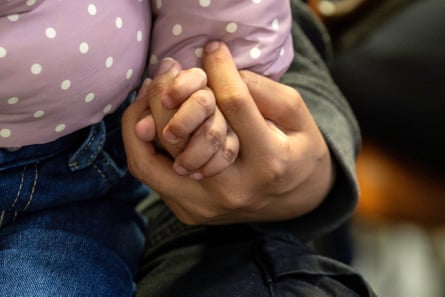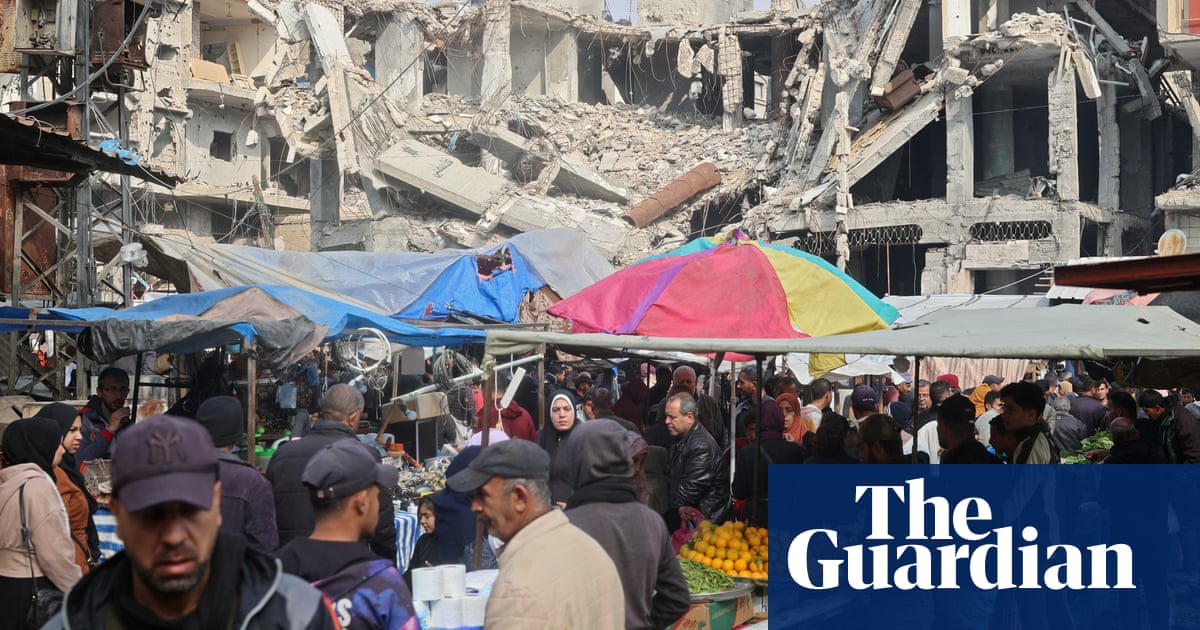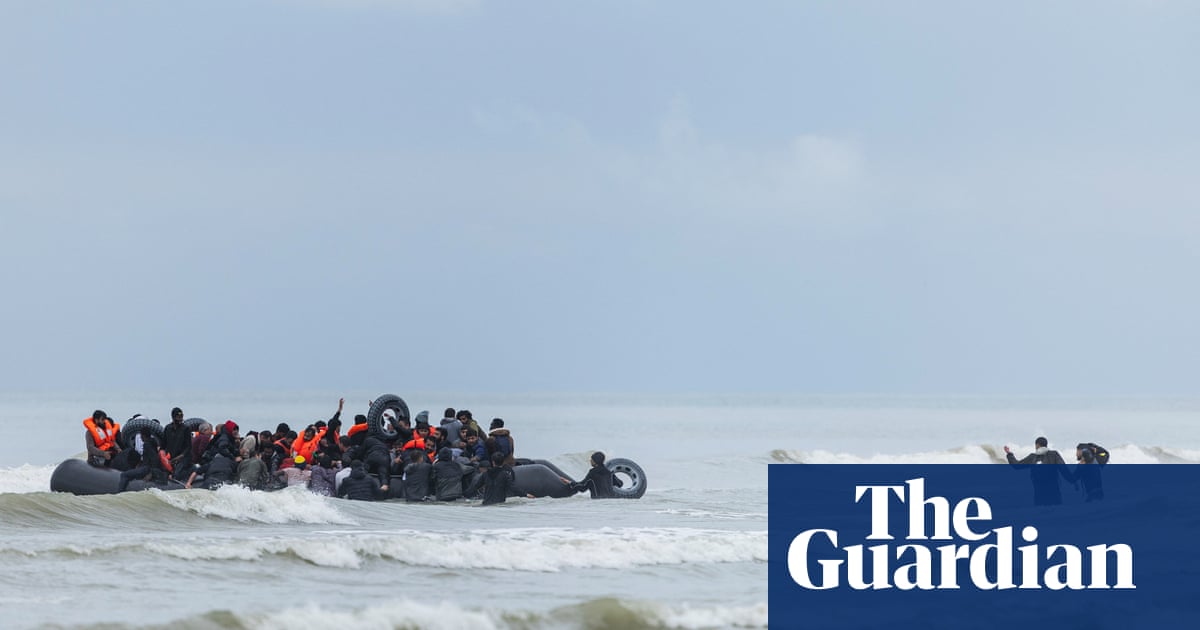Donald Trump confirmed on Monday his intentions to make mass deportations a hallmark of his second term.
That such measures would drastically upend the lives of the US’s immigrant communities is widely understood. But sweeping anti-immigrant policies would also be detrimental to American citizens – most notably the nearly 20 million US-born children of immigrant parents.
“Mass deportations will be profoundly harmful to US citizen children,” said Andrew Craycroft, staff attorney at the Immigrant Legal Resource Center in San Francisco.
In 2022, one in four US children had at least one immigrant parent, and more than 4 million US citizens under age 18 lived with an undocumented parent.
“These are millions of US citizen children who were born here, who have grown up going to your elementary schools and playing on your little league baseball teams, who are facing a very real danger of losing their parents,” said Kelly Albinak Kribs, co-director of the Technical Assistance Program at the Young Center for Immigrant Children’s Rights.
And while the mechanics by which the president-elect would actually execute his sweeping anti-immigrant agenda remain murky, there is little doubt that creating a climate of fear for immigrant communities is one of his administration’s top priorities – and one that will cause irreparable psychological damage to millions of US citizens.
Deporting the parents of US-citizen children didn’t begin with Trump. However, past administrations took precautions to limit the trauma it caused, advocates and legal experts say.
The Obama administration barred Ice raids from taking place in schools, childcare centers, hospitals and places of worship. Before that, the Bush administration required Ice to notify schools and child protective services in advance of a large-scale raid.
Trump’s policies, on the other hand, appear to traumatize children by design to curb unwanted immigration. “Under Trump, previously and in the future, deep harm to children is absolutely intentional and in many ways is the entire point,” said Wendy Cervantes, director of immigration and immigrant families at the Center for Law and Social Policy.
Trump’s “zero tolerance” policy at the southern border separated at least 5,000 foreign-born children and hundreds of US citizen children from their parents. He also ramped-up interior enforcement measures, such as targeted worksite raids. In 2019, Cervantes visited towns in central Mississippi where Ice agents had arrested nearly 700 undocumented poultry plant workers, many of whom had US-born children attending nearby public schools.

“The kids could see their parents being marched into white vans, handcuffed, as they were leaving school,” Cervantes said. “It was like a nightmare. And those kids, to this day, are still requiring a lot of mental health support.”
Come January, Americans should anticipate a return to “draconian measures” such as family separation, said Kribs. Trump has also indicated desires to go after immigrants with legal status, expand the circumstances that allow for denaturalization and pursue unlawful measures that explicitly target the US-born children of immigrants like ending birthright citizenship.
But how Trump would execute his more radical ambitions, including militarized mass deportations, is unclear.
Such an operation would take a high degree of coordination, both between US agencies and with foreign governments, to pull off. A country like Mexico may accommodate receiving a few hundred people, “but it’s a completely different issue to talk about hundreds of thousands of people being sent back”, said Nando Sigona, professor of international migration and forced displacement at the University of Birmingham.
It would also be expensive. According to Debu Gandhi, senior director for immigration policy at the Center for American Progress, deporting workers would accelerate inflation, shrink the food supply, slow efforts to build affordable housing and squander taxpayer dollars in efforts to “deport mothers of US citizen children who [pose] no security threat”, Gandhi said.
And then there’s the question of public opinion.
Backlash again Trump’s 2018 family separation policies was widespread across the political spectrum, explained Lee Gelernt, an attorney at the American Civil Liberties Union who led the lawsuit against “zero tolerance”. “If a second Trump administration does extreme things, we hope and expect the public will push back,” he said. “In his first term, I think they believed they had dehumanized the immigrant population to such an extent that the public would not push back even when little babies were torn away, but there was enormous pushback across the political and ideological spectrum.”
Whether or not mass deportations occur, citizen children of immigrants will be adversely impacted by living in a constant state of fear.
Research shows that the threat of parental separation alone can cause PTSD and toxic stress in young children. Under the coming administration, that stress will be especially pronounced in mixed-status families, where one or more parent lacks legal status. “It’s easiest to start with people who are wholly unprotected,” said Kribs.
Anti-immigrant policies can also have a chilling effect by which immigrant parents, fearing arrest and separation, keep their citizen children home from school, refrain from signing up for benefits such as food stamps or health insurance, and avoid taking their citizen children to the doctor, said Sigona.

Misinformation exacerbates immigrant parents’ fears that engaging with public services could jeopardize their status or their chances of acquiring permanent residency. The repercussions can be dangerous. “There were parents telling us about how they were making decisions about whether or not to take their kids to the emergency room in the middle of the night,” Cervantes said.
Other citizen children may lose contact with the US entirely. If a parent facing deportation chooses to keep their family together, a citizen child will have to leave the US and resettle elsewhere – often in an unfamiliar country that their parent fled for reasons of safety or security.
Existing guidance urges Ice agents to detain the parents of citizen children near their children’s residence, arrange for visitation rights, and give them time to make childcare arrangements – but this isn’t binding. “Broadly speaking, these citizen children don’t have the right to have their parent remain with them,” Craycroft said.
“Children simply don’t have the same rights as adults,” echoed Cervantes, describing the discrepancy as one of the immigrant system’s biggest flaws.
Knowing this, immigrant and child welfare advocates are prepared to have all hands on deck to combat what they see as an imminent crisis for millions of citizen children.
“We are facing these next four years clear-eyed and ready to meet the challenge,” said the Young Center’s Kribs. “But there’s going to be a lot of heartbreak along the way.”

.png) 1 month ago
21
1 month ago
21













































